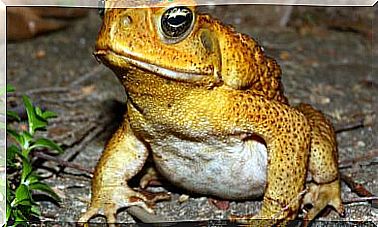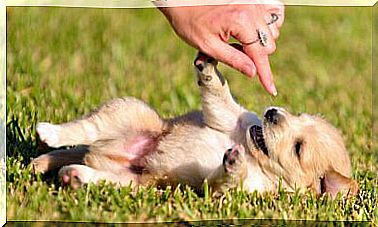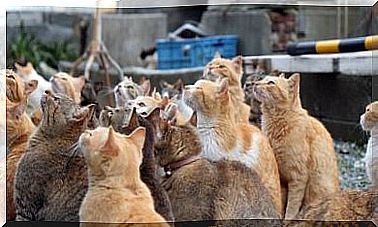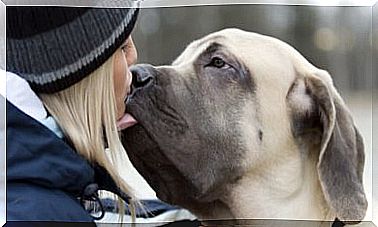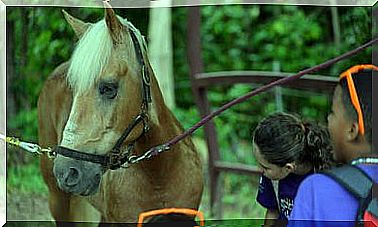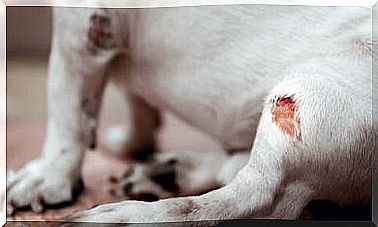Stress In Animals: A Common Bad

Stress is considered the evil of the century and, unfortunately, it doesn’t just afflict human beings. Stress is a natural response to different environmental and psychological stimuli, although it is increasingly common due to the fast and tense pace that characterizes the lifestyle of people in cities.
Unfortunately, this rhythm and the consequences it brings to our lives, also ends up affecting other species, so we present below some characteristics of stress in animal stress, its causes and how to combat it.
Causes of Stress in Animals
When we talk about stress in animals, we have to think of those animals that share the space in our homes with us, as pets.
However, this corresponds to the selfish view we have of the animal world and the indolence towards other creatures that are part of our consumption chain.
For example, the animals that suffer the most stress from human contact are animals used for laboratory testing. This results from the various processes to which they are subjected, isolation, consumption of substances that produce adverse reactions and confinement to which they are subjected. This, added to the excess of manipulation and lack of affection.
We also find in this same line the animals that are part of our food chain and belong to large production cycles.
That is, many of these animals are stored in small spaces, transported from one place to another, isolated, etc, and the situation only gets worse when it comes to transporting to slaughterhouses or production facilities.
However, this turned out to be counterproductive for the business. For example, in meat or milk processing facilities, it is possible to notice a reduction in product quality if the animal is experiencing periods of stress.
Therefore, some factories have taken measures to improve the quality of life of these animals, thus ensuring a better product.
Animals subjected to long hours of work are also subject to stress, especially when the work is heavy, for example, hauling vehicles, as in the case of livestock, working in circuses and other shows, among others.
Within this group are also bulls used in bullfights and other animals used in festivals.
Pets get stressed too
However, our pets are not exempt from suffering stress, on the contrary, because they share a lot of our lifestyle, many of the situations, changes and habits end up causing them high levels of stress. Becoming Behavior Problems.
For example, in pets, such as dogs and cats, it is common to capture the mood of the owners, they create strong bonds which, indirectly, end up creating stress.
The same happens when animals have inadequate learning processes, for example, when generally a dog is used to being alone, it is common to develop separation anxiety.
Another situation that easily creates stress for your pet is long car journeys, being in very crowded, noisy, hot places or frequent changes of residence. The owner’s lack of affection is one of the main causes of stress.
For smaller animals, having an environment is vital in cases such as turtles and fish, the best in these cases is to give them an aquarium according to the size of the animal, clean and where it is possible to receive sunlight.
If you have another type of pet, you should conduct research on how to keep them in captivity.
A very sad case is the birds, many end up suffering serious health problems and mental damage, due to boredom, loneliness, confinement and for being forced to live in a small space. A clear example is when birds pluck their feathers.
Therefore, the best thing you can do to combat stress is to be aware of your pet’s temperament, sudden changes in attitude indicate that something is up.
It is possible for the animal to develop destructive personalities, vomiting or dementia. It is best to consult with your veterinarian to reduce stress levels in your pet.

